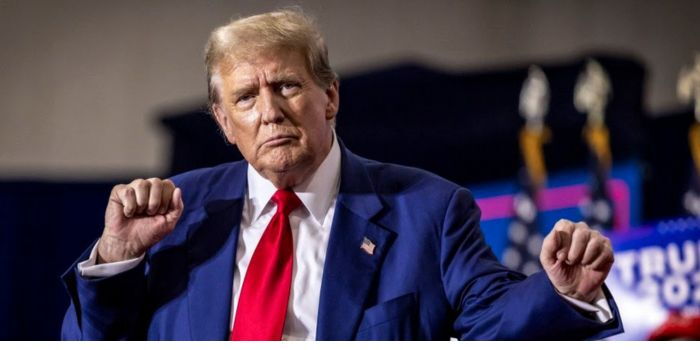On Monday, April 7, U.S. President Donald Trump issued a stern warning to Kenya regarding what he termed as unfair trade practices.
The warning, delivered through the U.S. Department of Trade, centered on Kenya’s decision to impose a 50 percent import tax on corn from the United States, alongside strict regulatory requirements that make it hard for U.S. exporters to access the Kenyan market.
According to the U.S. Department of Trade, these measures have effectively locked out American corn exporters from a market that shows great potential for growth.
“Kenya imposes a 50 percent tariff on U.S. corn imports and has put in place burdensome regulations, which have essentially shut out American corn from the Kenyan market,” read the department’s statement.
“The current value of Kenya’s feed corn market stands at approximately $50 million (around Ksh6.4 billion), and it is projected to expand by 30% by the year 2027,” it added.
In response to these trade barriers, Trump warned of looming consequences for Kenya if the situation remains unresolved.
Staying true to his “America First” agenda, he hinted at retaliatory actions aimed at safeguarding U.S. farmers and manufacturers from what he described as the “exploitation of America.”
“Ensuring fair market access for American farmers is crucial so they can compete equally in global markets,” Trump said, underscoring his administration’s firm stance on trade fairness.
Kenya’s import tax on corn applies to all countries outside key regional blocs like the East African Community (EAC) and the Common Market for Eastern and Southern Africa (COMESA), a group which includes nations benefiting from lower or zero tariffs.
The aim of this policy is to protect local farmers from foreign competition, stabilize prices, and encourage self-reliance in maize production.
While the U.S. has raised concerns, the tariffs are part of the EAC’s Common External Tariff (CET) agreement.
This is a legally binding regional policy, and changes to it are not easily made. Nevertheless, Kenya has, in the past, temporarily lifted certain agricultural tariffs when local food prices spiked, in order to stabilize the market.
This latest development follows Trump’s executive order signed on Wednesday, April 2, which imposes a new 10 percent tariff on all Kenyan exports to the U.S.
This move is expected to hit Kenya’s Ksh109.7 billion (USD 784 million) worth of exports to America hard.
The new tariff particularly affects key Kenyan industries like textiles, tea, and coffee—sectors that had previously enjoyed duty-free access to the U.S. market under the African Growth and Opportunity Act (AGOA).
The change could result in reduced exports, job losses, and significant revenue drops for Kenyan businesses that depend on trade with the United States.
Reacting to the situation, Kenya’s Prime Cabinet Secretary Musalia Mudavadi admitted that the country may take a long time to recover from the effects of the new U.S. trade policies.
He made the remarks while speaking at the inaugural Africa Exchange Meeting in Nairobi on Monday, April 7.
Mudavadi emphasized that the Kenyan government must act swiftly to support industries that are likely to be impacted by these changes and to find ways of adapting to the shifting global trade landscape.
Join Our Political Forum official 2025 WhatsApp Channel To Stay Updated On time https://whatsapp.com/channel/0029VaWT5gSGufImU8R0DO30


